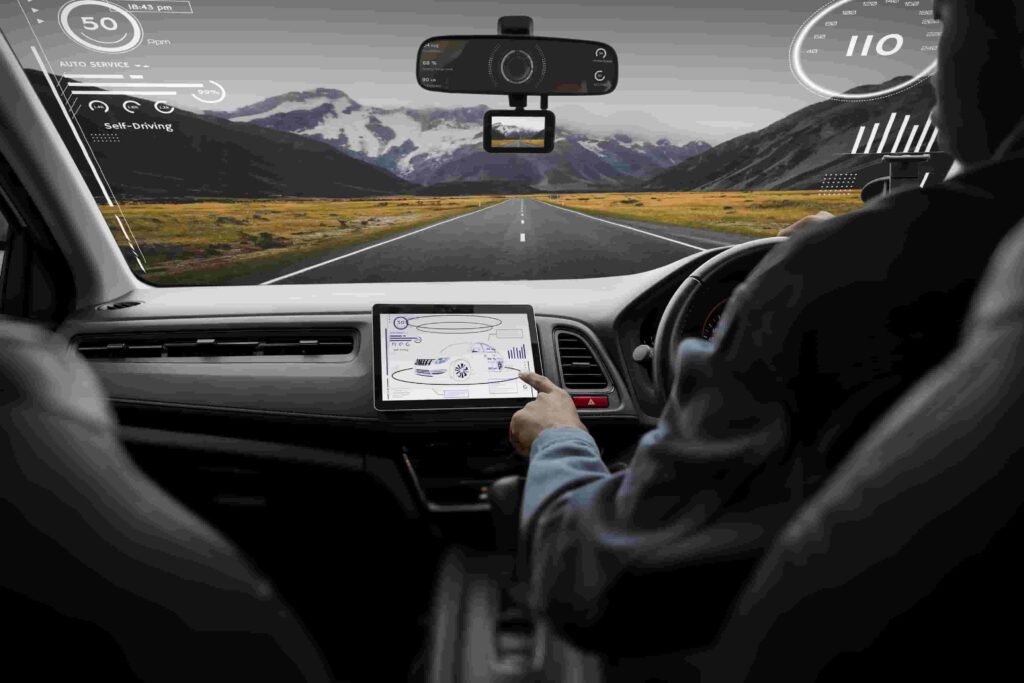If you’ve noticed more electric vehicles (EVs) silently gliding through your neighborhood, you’re witnessing a transportation revolution in action. Once a niche market, EVs are now at the forefront of a global shift towards greener transportation. This post will explore how electric vehicles are reshaping the future of travel, shedding light on their environmental, economic, and technological impact while addressing the needs of eco-conscious consumers, tech enthusiasts, and urban commuters. Join us as we unravel the complexities and potential of this electrifying transformation.
Introduction to the Rising Trend of Electric Vehicles
The spotlight on electric vehicles has never been brighter. Propelled by environmental concerns and technological advancements, the EV market is burgeoning. With major automakers committing to electric models and governments worldwide implementing EV-friendly policies, the rise of electric vehicles seems unstoppable. This trend represents more than just a shift in consumer preference; it symbolizes a critical step towards a sustainable future.
Electric vehicles offer an enticing blend of innovation and responsibility. Unlike their gas-guzzling counterparts, EVs produce zero tailpipe emissions, making them a perfect choice for those seeking to reduce their carbon footprint. The allure of silent motors and cutting-edge technology goes beyond aesthetic appeal—it indicates a future where transportation aligns with ecological values.
But what does this mean for everyday commuters? For urban dwellers, the rise in EVs promises cleaner air and a quieter environment. Meanwhile, tech enthusiasts are drawn to the advanced features that EVs offer, from regenerative braking systems to autonomous driving capabilities. Understanding the intricacies of this trend is essential for anyone looking to be a part of the future of transportation.
Environmental and Economic Benefits of EVs
Electric vehicles are not just a convenience; they are a boon to the environment. By eliminating gasoline engines, EVs reduce reliance on fossil fuels, which significantly lowers greenhouse gas emissions. This change is vital in the fight against climate change, aiming to minimize our planet’s soaring temperatures.
The economic benefits of EVs are equally compelling. While the initial cost of an electric vehicle might seem hefty, the savings over time are substantial. Owners often enjoy reduced fuel expenses, lower maintenance costs, and favorable tax incentives. These financial advantages make EVs a smart investment for forward-thinking consumers.
Furthermore, as renewable energy sources become more accessible, charging an EV is increasingly affordable and environmentally friendly. This synergy between electric vehicles and green energy resources exemplifies how technology can drive both economic growth and environmental stewardship. Cities that adopt this model may see improved air quality and increased economic resilience, benefiting both individuals and communities.
Current State of the EV Market
The electric vehicle market is teeming with activity and innovation. Major automakers are investing heavily in electric technology, resulting in a diverse array of models—from compact cars to luxury SUVs. This variety caters to different consumer needs, expanding the reach and appeal of EVs to a broader audience.
Recent statistics highlight the growing adoption of EVs. According to the International Energy Agency, electric car sales increased by 40% in 2020, reaching a record 3 million units globally. This momentum is indicative of a broader shift in consumer preferences, signaling that electric vehicles are becoming a mainstream choice.
While the market is expanding, it’s also evolving. Companies are focusing on enhancing battery technology, increasing range, and improving charging infrastructure. These developments reflect a commitment to overcoming previous limitations and setting new standards for performance and convenience. In essence, the EV market is not only thriving; it is continuously innovating and adapting to meet consumer expectations.
Technological Advancements in EVs
Technological innovation is at the heart of the electric vehicle revolution. From batteries to autonomous driving systems, EV technology is advancing rapidly, offering unprecedented benefits to drivers and manufacturers alike. One of the most significant breakthroughs is in battery efficiency and range.
New battery technologies are extending the range of electric vehicles, making long-distance travel more feasible. Lithium-ion batteries remain the industry standard, but research into solid-state batteries promises even greater efficiency and safety. These advances are crucial for convincing skeptics that EVs can meet the demands of everyday driving.
In addition to batteries, advancements in software and connectivity are transforming the driver experience. Many electric vehicles now feature sophisticated infotainment systems, real-time traffic data, and remote diagnostics. These enhancements add value to the EV ownership experience, appealing to tech-savvy consumers who want more from their vehicles. They also illustrate how EVs are leading the charge in automotive innovation, setting a benchmark for the industry.
Challenges and Solutions for Widespread EV Adoption
Despite their benefits, electric vehicles face challenges preventing them from becoming the universal choice. One primary concern is infrastructure—specifically, the availability of charging stations. To achieve widespread adoption, cities must develop a robust network of accessible charging points.
Addressing this issue requires collaboration between governments and private companies. Investments in infrastructure, coupled with policy incentives, are essential for building the necessary support systems. Innovative solutions, such as wireless charging and ultra-fast chargers, are emerging to bridge the gap and enhance convenience for EV owners.
Another challenge lies in consumer perception and education. Myths about EVs, like limited range and high costs, can deter potential buyers. However, as awareness grows and technology progresses, these misconceptions are being dispelled. Transparent communication and firsthand experiences are critical for changing perceptions and driving adoption.
The Impact of EVs on Urban Infrastructure
Electric vehicles are poised to reshape urban landscapes in meaningful ways. Their rise necessitates changes in city planning and infrastructure, ensuring that urban environments can accommodate the unique needs of EVs. This transformation presents both challenges and opportunities for urban areas.
One significant impact of EVs is on parking infrastructure. Cities need to integrate charging stations into existing parking facilities and design new spaces to cater to electric vehicles. This shift requires strategic planning and investment, but it can lead to more efficient use of urban space and reduced congestion.
Additionally, the quiet operation of EVs contributes to a reduction in noise pollution, enhancing the quality of life in bustling cities. This benefit is especially important for densely populated areas, where traditional vehicles contribute significantly to noise levels. By integrating EVs, cities can create more peaceful and livable environments for residents.
Lifestyle Changes and Consumer Adoption
The adoption of electric vehicles is not just a technological shift; it’s a lifestyle change. For consumers, transitioning to an EV means rethinking how they drive, charge, and maintain their vehicles. This new approach to transportation has far-reaching implications for daily routines and habits.
One notable change is the way drivers refuel their vehicles. Instead of making regular trips to the gas station, EV owners often charge their vehicles at home or at work. This convenience simplifies the fueling process, saving time and effort. It also encourages a more deliberate approach to energy consumption, aligning with eco-conscious values.
Furthermore, electric vehicle ownership fosters a sense of community among like-minded individuals. Many EV owners participate in online forums, attend meetups, and engage in discussions about sustainable transportation. This camaraderie enhances the ownership experience, providing support and shared knowledge for newcomers and veterans alike.
Future Predictions and Innovations in EV Technology
The future of electric vehicles is exciting and full of potential. Experts predict continued growth and innovation in the industry, driven by technological advancements and increasing demand for sustainable transportation. These developments will shape the trajectory of EVs and their role in the future of mobility.
One promising area of innovation is autonomous driving. Electric vehicles are well-suited for integration with autonomous technology, given their advanced electronic systems. This synergy could revolutionize how we think about transportation, reducing the need for individual vehicle ownership and promoting shared mobility solutions.
Another exciting prospect is the development of bi-directional charging, allowing EVs to supply power back to the grid. This capability transforms vehicles into mobile energy sources, offering flexibility and resilience for energy management. It also aligns with broader efforts to integrate renewable energy into the grid, paving the way for a more sustainable energy future.
Conclusion and Call to Action for a Sustainable Future with EVs
Electric vehicles are more than just a trend; they are a pivotal force driving the future of transportation. By offering environmental, economic, and technological benefits, EVs are reshaping how we move and live. For eco-conscious consumers, tech enthusiasts, and urban commuters, the time to consider an electric vehicle has arrived.
The transition to EVs requires collaboration, innovation, and a willingness to adapt. By embracing this change, individuals and communities can contribute to a cleaner, more sustainable world. Whether you’re an early adopter or just curious about the possibilities, exploring the world of electric vehicles is a worthwhile endeavor.
To further understand the impact and potential of EVs, consider engaging with communities, attending events, or test-driving an electric vehicle yourself. Together, we can accelerate the shift toward a sustainable transportation future.



